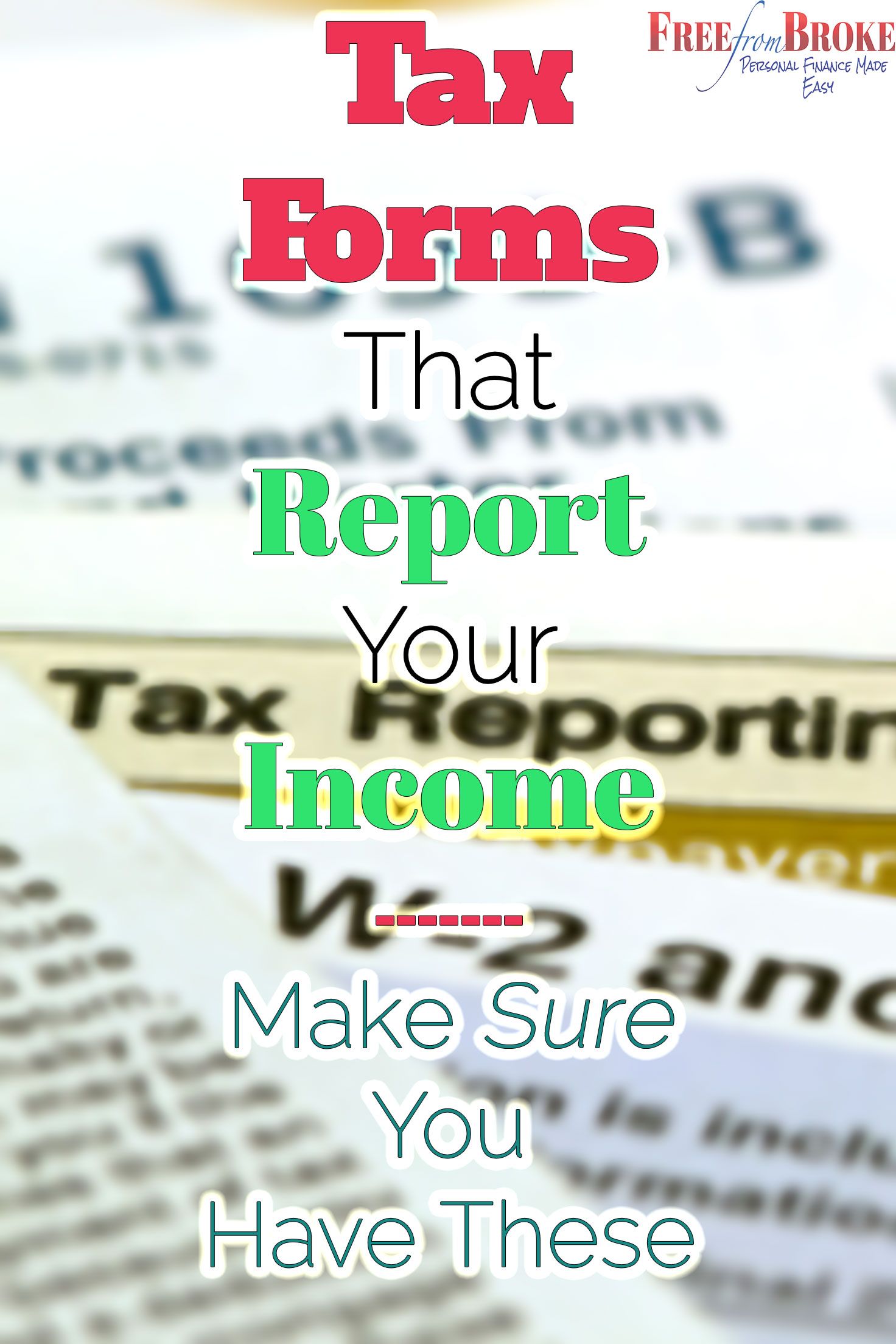For many, income reporting at tax time is fairly straightforward.
You get a W-2, there’s your income. The IRS gets a copy of the W-2, your state gets a copy, and you keep a copy for yourself. Your income is reported on this form, and you don’t have to worry a great deal about other income reporting.
However, in a world that increasingly provides opportunities to earn money from side hustles and investments, reporting income has become a little more complex.
It can be tempting to avoid reporting income to the IRS, but it’s important to remember that failure to report your income is illegal, and can result in fines and penalties and even criminal charges.
As the IRS works to recapture some of the revenue it feels it has been losing lately, you should understand that more people are reporting your income to the IRS than before.
So you need to be on your toes.
See What Income Tax Forms Report Your Income That You Need to Keep an Eye Out For

Who’s Reporting to the IRS?
Most people who own home businesses, especially those that involve providing services as a contractor, are aware that the 1099-MISC is probably going to be issued if you have earned more than $600 working for someone. (Realize, though, that the IRS still expects you to report your income, even if you don’t get a 1099-MISC. You just don’t have to pay self-employment tax unless your net earnings exceed $400.)
Additionally, if you earn more than a certain amount in interest on your deposits, your bank is likely to issue a 1099-INT — a copy of which goes to the IRS.
Your dividend income on the 1099-DIV form is also reported to the IRS.
You might also receive forms reporting your income from Social Security benefits and unemployment benefits. Many people are surprised to learn that Social Security income and unemployment income are taxed.
There are some additional reporting requirements as well.
Your broker is required to include your cost basis, so that when you sell a stock, your gains can be more easily figured out. That way, determining what you owe in capital gains tax can be quickly determined. The IRS suspected that some investors were under-reporting their gains, and the new reporting requirements are likely to reduce this incidence.
Another reporting feature to look out for is the 1099-K.
This is a form that is issued by third-party payment processors. The form issued by PayPal is probably the most likely to be seen, but banks and others can issue this as well.
If you have done more than $20,000 of business, and made at least 200 transactions, you should expect a 1099-K.
It’s designed to catch those who might have been under-reporting income from eBay sales and online business dealings. Now, there is a record when you are engaged in selling in amounts that could at least be considered a side business.
All of this could be reported to the IRS by someone else, and if you aren’t reporting it on your tax return, the discrepancy could result in an audit — and an assessment of penalties and interest.
Reconciling Your Records to Your Tax Forms
Of course, this means that you need to be prepared to reconcile your own records to what appears on the tax forms. Double check cost basis information with what appears on your 1099-B tax form.
Realize that reinvested dividends are still considered income, and you pay taxes on them, even though you didn’t get the cash in hand.
Look at your different types of income and make sure that it squares with what is on your tax forms. Remember, though, that you don’t have to worry about investment, dividend and interest income that is held in tax-advantaged retirement accounts (like a Roth IRA).
What might be a little harder might come with the 1099-K form.
I handle a lot of my payments through PayPal, which means that all of that income is reported on the 1099-K form.
However, a lot of the clients that pay me through PayPal also issue 1099-MISC forms. This means that some of income is double-reported. I am going to have to cross-reference my income from 1099-MISC forms, and have a record of where it coincides with income reported on the 1099-K.
Final Word on Different Tax Forms to Look Out For
These are issues that you need to take into account as you get ready to prepare your taxes.
If you have complicated taxes, an accountant can help you work through everything, but it’s still a good idea to know where your income is coming from, and how it is reported to the IRS.
Keep good records, and you will be better able to reconcile your records with tax forms — and reduce your chances of being assessed tax penalties.
Thanks for the great list!